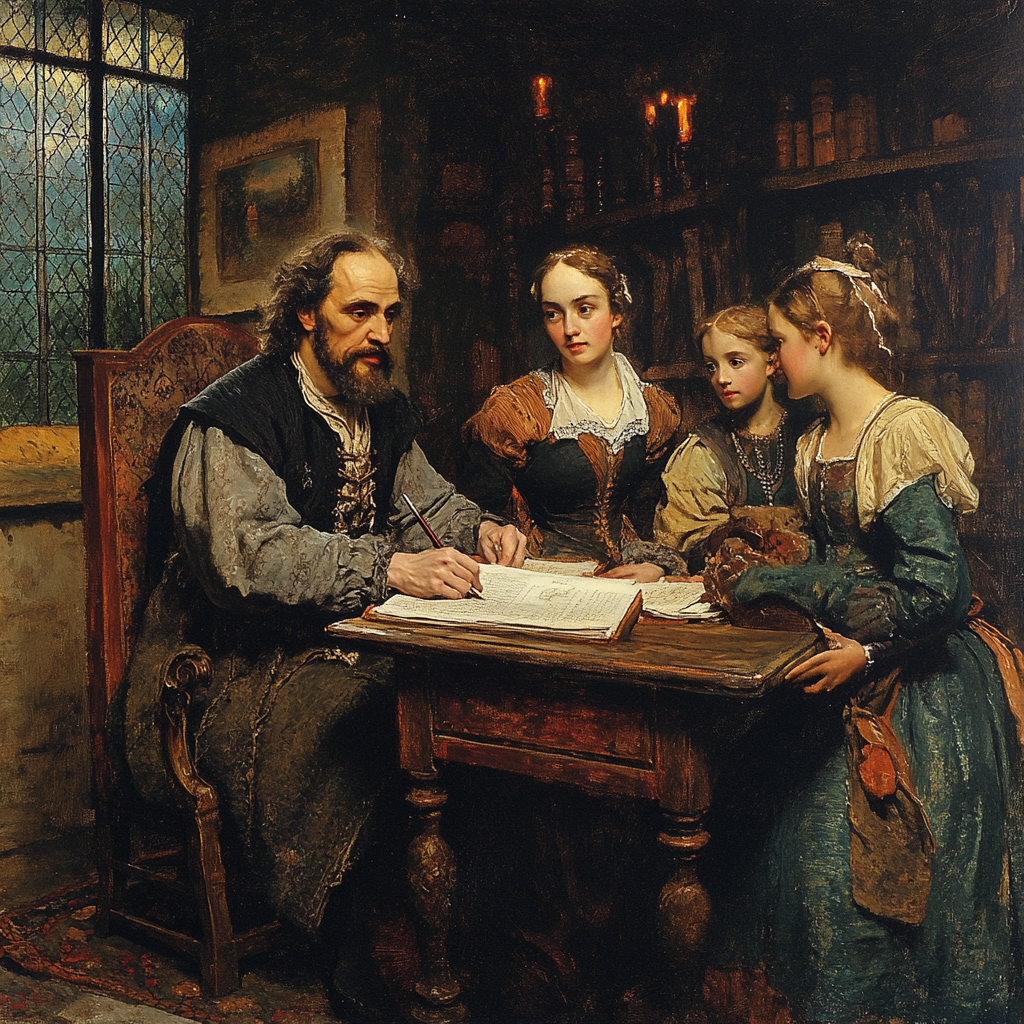Did you know that Shakespeare’s business ventures, the renowned playwright, was also a savvy businessman? In addition to his literary pursuits, Shakespeare was also involved in various business ventures that contributed to his success. While he is best known for his timeless plays and poetry, understanding his entrepreneurial side offers a deeper insight into his life and the competitive world of Elizabethan England. Shakespeare’s ability to navigate the business world played a crucial role in his rise to success, making him not just a literary genius but also a business visionary.
The Business Environment of Elizabethan England

During this time period, there was a significant increase in commerce and trade, leading to economic growth and the emergence of urban centers. This urbanization created new opportunities for business and cultural development. One notable industry that flourished during this period was the theater industry, with the rise of popular playwrights and the construction of new theaters in major cities. The socio-economic context of the time was marked by a thriving commercial economy, the expansion of urban areas, and the flourishing of the arts and entertainment industry.
During the Elizabethan era, entrepreneurs faced both challenges and opportunities. One of the main challenges was the strict regulations and censorship imposed by the government, which could limit the types of businesses they could engage in. However, there were also opportunities for entrepreneurs, especially in the growing trade and exploration industries, as well as in the emerging field of theater. Speaking of theater, it played a significant role in the economy and society during Shakespeare’s time. The theater was a popular form of entertainment for people of all social classes, and it provided employment opportunities for actors, playwrights, and other theater professionals. Additionally, the theater industry contributed to the local economy by attracting audiences and generating revenue from ticket sales and concessions.
Shakespeare’s Early Ventures and Financial Ambitions
Shakespeare’s transition from Stratford-upon-Avon to London was a significant turning point in his career. Initially, he faced struggles as he tried to establish himself in the competitive theater scene of the city. However, through perseverance and talent, he eventually broke through and became a prominent figure in the London theater world. Evidence of Shakespeare’s financial awareness can be seen in early records, which show that he made shrewd investments and carefully managed his business affairs. This demonstrates that he was not only a gifted playwright and poet, but also a savvy entrepreneur who understood the importance of financial stability.

Shakespeare as a Shareholder in the Lord Chamberlain’s Men
The Lord Chamberlain’s Men was a renowned theater company in Elizabethan England, active from 1594 to 1642. They were the leading theatrical company of the time and performed many of William Shakespeare’s plays. Shakespeare was not only a playwright for the company but also a shareholder. As a shareholder, Shakespeare would have received a portion of the company’s profits, which could have been quite lucrative given the popularity of the company and his own success as a playwright. The company’s revenue would have come from various sources, including ticket sales for their performances, patronage from noble families or the royal court, and fees for performances at various venues.
The company’s transition to the King’s Men was a significant move that had a major impact on its wealth. As part of the King’s Men, the company gained royal patronage and access to the court, which opened up new opportunities for business and trade. This led to increased wealth and prosperity for the company, as it was able to secure lucrative contracts and partnerships. Additionally, the association with the King’s Men lent the company a sense of prestige and legitimacy, further enhancing its reputation and financial standing. Overall, the transition to the King’s Men had a positive impact on the company’s wealth and success.
The Globe Theatre: Shakespeare’s Landmark Investment
The Globe Theatre was constructed in 1599 through a partnership between William Shakespeare and a group of actors known as the Lord Chamberlain’s Men, as well as other investors. The construction of the theater involved legal and financial maneuvers, as the group had to secure a lease for the land and obtain the necessary permits to build the theater. The Globe Theatre was built using timber from an earlier theater and was designed to accommodate up to 3,000 spectators. The partnership between the actors and investors allowed for the construction of one of the most iconic theaters in history, where many of Shakespeare’s greatest plays were performed.
The Globe Theatre holds significant financial success as it was quite profitable during its operation. However, it also faced numerous challenges, such as competition from other theaters, the risk of fire, and the occasional outbreak of the plague. Despite these challenges, the Globe Theatre was able to thrive and become a key part of Shakespeare’s legacy as both an artist and an entrepreneur. It provided a platform for Shakespeare to showcase his work and also allowed him to financially benefit from his plays. In this way, the Globe Theatre played a crucial role in shaping Shakespeare’s legacy and influencing the world of theater.
Real Estate Investments in Stratford-upon-Avon

Shakespeare’s real estate acquisitions were a key factor in his wealth and status during his lifetime. His most notable property was New Place, a large and impressive house in Stratford-upon-Avon, which he purchased in 1597. This property was a symbol of his success and reflected his rising social standing. In addition to New Place, Shakespeare also owned farmland and other properties in and around Stratford. These investments were strategically important for Shakespeare, as they not only provided him with a source of income but also solidified his position in the local community. Owning property was a sign of prosperity and stability, and it allowed him to participate in local politics and social circles. Shakespeare’s financial dealings were not without controversy, however.
Some scholars have questioned the legitimacy of Shakespeare’s real estate transactions, as there are records of lawsuits and disputes over his property. Additionally, some have suggested that his business dealings may have influenced the themes and characters in his plays. Despite these controversies, there is no denying that Shakespeare’s real estate acquisitions played a significant role in his life and career, contributing to his wealth, status, and influence in both the local community and the literary world.
Shakespeare’s Financial Strategies and Legacy
Diversification of income streams is a smart financial strategy that involves spreading out sources of income to minimize risk and ensure stability. By investing in multiple areas such as theater, real estate, and other ventures, individuals can create a more secure financial foundation. Additionally, careful planning for the future, as seen in his will, demonstrates foresight and consideration for loved ones. It’s important to have a comprehensive approach to financial management to ensure long-term stability and security.
His strong business acumen allowed him to make sound financial decisions, expand his company, and build a strong reputation in the industry. This ultimately led to his long-lasting legacy, as he was able to create a sustainable and successful business that continued to thrive even after his passing. His ability to navigate challenges, seize opportunities, and build a strong company culture all played a significant role in his enduring impact on the business world.
Lessons from Shakespeare’s Business Ventures

Balancing art and commerce is a crucial aspect for modern entrepreneurs. It is important to find a middle ground where creativity and innovation can thrive while also ensuring that the business is sustainable and profitable. This can be achieved by understanding the market demand, staying true to your artistic vision, and finding ways to monetize your art without compromising its integrity. Shakespeare’s strategies can offer valuable insights for modern entrepreneurs. His ability to cater to the tastes of the masses while also delivering high-quality art is a testament to his success. Entrepreneurs can learn from his approach of understanding the needs and desires of their audience, adapting their products or services to meet those needs, and finding innovative ways to market and sell their offerings.













